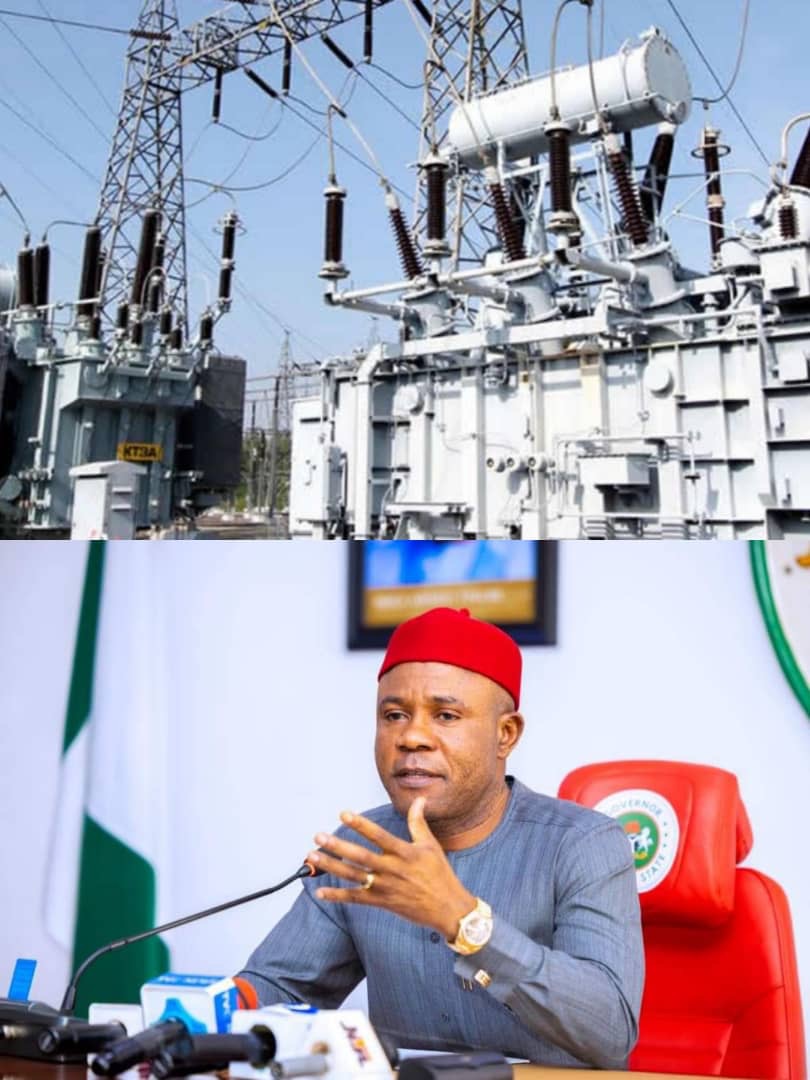In a historic move that positions Enugu State as a pioneer in electricity regulation in Nigeria, the Nigerian Electricity Regulatory Commission (NERC) formally transferred regulatory oversight for the electricity sector in the state to the newly established Enugu Electricity Regulatory Commission (EERC). This landmark decision marks Enugu as the foremost state to initiate and drive this critical regulatory shift, further cementing its role as a leader in innovative governance under the stewardship of Governor Peter Ndubuisi Mbah.
A Visionary Leadership.
Governor Peter Ndubuisi Mbah has been at the forefront of this transformative process, envisioning a more sustainable and efficient electricity sector that can drive economic growth and improve the quality of life for residents. His administration has prioritized infrastructure development and regulatory independence to foster a conducive environment for investments in the energy sector. The establishment of the ESERC is a testament to his commitment to empowering state regulators to better serve the unique needs of Enugu residents and businesses.
A Step Towards Decentralization.
The transfer of regulatory responsibilities to the state level represents a significant step towards decentralizing electricity management in Nigeria. This model aims to enhance local accountability, improve service delivery, and stimulate competition among electricity providers. As more states seek similar regulatory frameworks, Enugu stands as a trailblazer, showcasing the potential benefits of localized energy governance.
Goals of the EERC.
The newly established Enugu Electricity Regulatory Commission has set several key objectives to guide its operations:
- Enhancing Efficiency: The EERC aims to improve the efficiency and reliability of electricity supply within the state, ensuring that distribution networks are adequately managed and maintained.
- Attracting Investments: By creating a predictable and transparent regulatory environment, the EERC hopes to attract private investments in the electricity sector, facilitating the development of sustainable energy initiatives.
- Consumer Protection: The commission will prioritize consumer rights, ensuring that the needs and concerns of electricity consumers in Enugu are heard and addressed.
- Promoting Renewable Energy: In line with global trends towards sustainability, the EERC will advocate for and support the integration of renewable energy sources into the state’s electricity supply.
- Capacity Building: The EERC plans to invest in training and capacity building for its staff and industry stakeholders to ensure effective regulation in an evolving energy landscape.
Implications for Enugu Residents.
For the people of Enugu State, this regulatory transition is expected to have immediate and long-term benefits. Enhanced oversight of electricity providers is anticipated to lead to improved service reliability and quality, reduced rates, and increased access to electricity in underserved areas. Additionally, by fostering a competitive market environment, consumers can expect greater choices when it comes to energy providers and services.
National Significance.
The transfer of regulatory powers to the Enugu Electricity Regulatory Commission is not just a milestone for the state; it carries significant implications for the entire Nigerian power sector. As the country grapples with energy deficits and distribution challenges, Enugu’s proactive approach could serve as a model for other states seeking to enhance their electricity regulatory frameworks. This pioneering effort could ultimately contribute to the overall revitalization of Nigeria’s energy sector, fostering economic growth and sustainable development across the nation.
Conclusion.
The establishment of the Enugu Electricity Regulatory Commission is a significant achievement for Governor Peter Ndubuisi Mbah and the state as a whole. By becoming the first in Nigeria to localize electricity regulation, Enugu is setting a precedent that highlights the importance of efficient governance in power management. As the state embarks on this new journey, the hope is that it will lead to a more energized, financially viable, and sustainable future for all residents.
Enugu State has indeed made history, and as the effects of this transition unfold, the commitment to improved electricity services will likely reinforce confidence in governance and invigorate the local economy.
.




